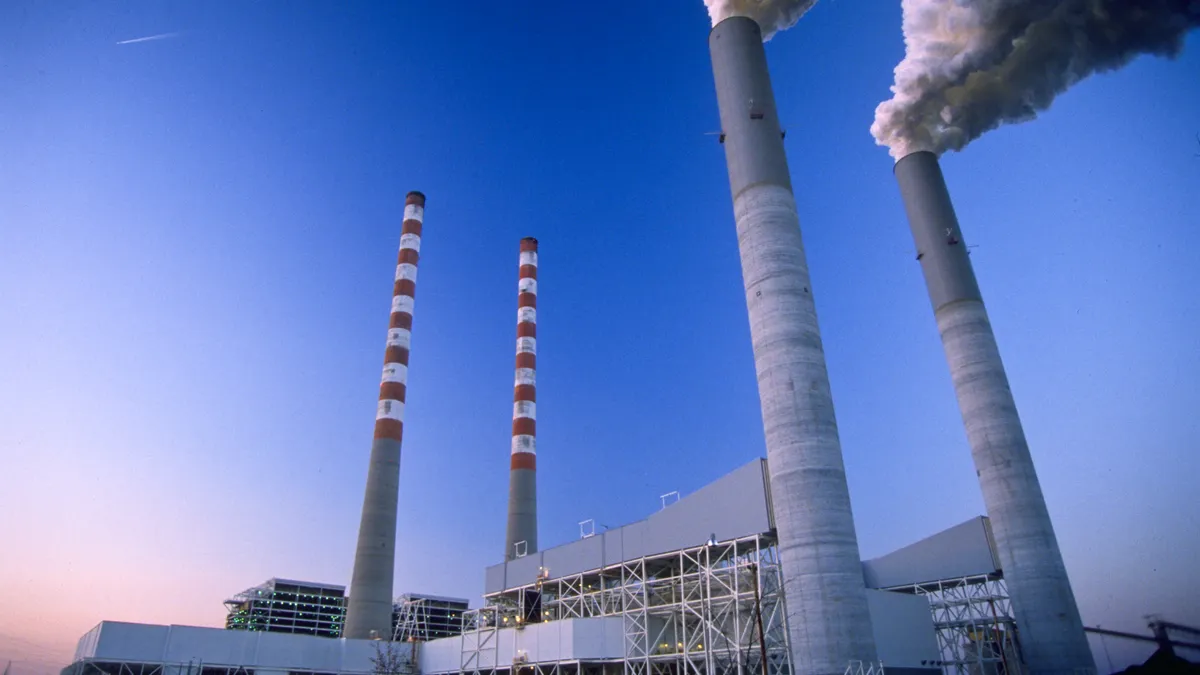The Edison Electric Institute on Wednesday sued the U.S. Environmental Protection Agency over its rule limiting greenhouse gas emissions from coal-fired and new gas-fired power plants.
The trade group for investor-owned utilities is challenging the EPA’s finding that carbon capture and storage should be the basis for complying with parts of the agency’s final rule.
“EPA’s record and the docket do not support the agency’s finding that CCS is adequately demonstrated for broad deployment across our industry at this time, or that 90% [carbon dioxide] capture through CCS is currently achievable,” EEI said in its appeal at the U.S. Court of Appeals for the District of Columbia Circuit. The agency’s finding is “premature,” the trade group said.
Under the EPA’s rule issued in April, the owners of coal-fired and new gas-fired power plants set to operate past 2039 will be required to meet a carbon dioxide emission standard equal to installing a CCS system and running it at 90% efficiency, with compliance beginning in 2032.
“CCS is an emerging technology, and EPA’s implementation timelines do not align with the current reality,” EEI President and CEO Dan Brouillette, said in a statement.
No coal- or natural gas-fired power plants meet the EPA’s CCS requirements, according to Brouillette.
“Throughout the rulemaking process, we repeatedly raised concerns that CCS is not yet ready for full-scale, industry-wide deployment, nor is there sufficient time to permit, finance, and build the infrastructure needed for compliance by 2032,” he said.
The Electric Generators for a Sensible Transition, an ad hoc group, has also challenged the rule at the appeals court. The group includes American Electric Power; American Public Power Association; Appalachian Power; Arizona Public Service; Duke Energy; Kentucky Power; Ohio Valley Electric Corporation; Public Service Co. of Oklahoma; Southwestern Electric Power; Talen Generation; Talen Montana Holdings; Vistra; and Wheeling Power.
Oklahoma Gas and Electric has also sued the EPA over the rule.
The appeals court on May 17 rejected a petition from the National Rural Electric Cooperative Association to stay the EPA’s rule. The court rejected a similar petition from a coalition of 25 states led by West Virginia.
Meanwhile, the Southwest Power Pool joined the PJM Interconnection in warning that the grid operator believes the EPA’s rule poses reliability risks.
“SPP is concerned that limited technological and infrastructure availability and the compliance time frame will have deleterious impacts including the retirement of, or the decision not to build, thousands of MWs of baseload thermal generation,” the grid operator said Monday.
SPP said it is “concerned that CCS has not yet been adequately demonstrated at the required capture rate, has not been commercially produced at scale, and will not be widely available and practicable at the level needed for the final rule’s 2032 compliance time frame.”














